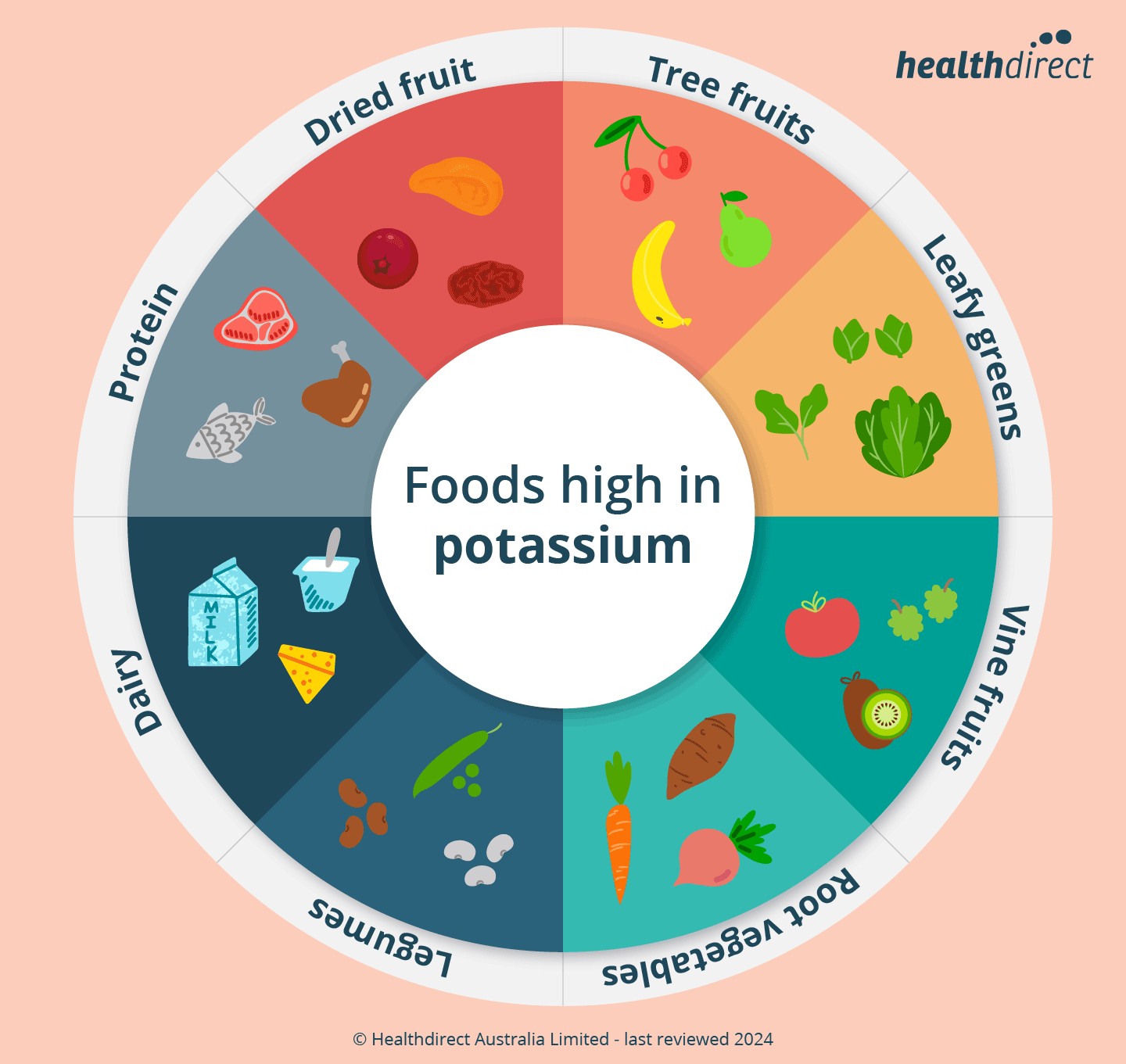Potassium is a vital mineral that plays an indispensable role in maintaining overall health. From supporting nerve signals and muscle contractions to regulating fluid balance and blood pressure, potassium is involved in numerous bodily functions. Ensuring you consume enough potassium through your diet is crucial, and thankfully, many delicious and readily available foods are packed with this essential nutrient. Let’s explore the top food sources high in potassium that you can easily incorporate into your daily meals to boost your health naturally.
Why is Potassium Important for Your Health?
Potassium is more than just another mineral; it’s an electrolyte that conducts electrical charges in the body, essential for a myriad of processes. It is critical for proper nerve function, sending signals that help coordinate movement, sensations, and automatic body functions. Potassium is also key to muscle contractions, including the most important muscle of all – the heart. Maintaining adequate potassium levels helps ensure a regular heartbeat and supports overall cardiovascular health. Furthermore, potassium aids in moving nutrients into cells and waste products out, contributing to cellular health and overall detoxification processes.
Discovering Foods Naturally Rich in Potassium
Fortunately, obtaining enough potassium doesn’t require drastic dietary changes. Nature provides a bounty of foods naturally rich in this mineral. Incorporating a variety of these into your diet can effortlessly help you meet your daily potassium needs.
Fruits Bursting with Potassium
Fruits are a delightful and convenient way to increase your potassium intake. Bananas are perhaps the most well-known potassium-rich fruit, but there are many others to choose from. Apricots, especially dried apricots, are a concentrated source. Avocados, often considered a vegetable but botanically a fruit, are another excellent option, providing not only potassium but also healthy fats. Oranges and other citrus fruits contribute to your potassium intake while also offering Vitamin C. Don’t forget about vine fruits like tomatoes – whether fresh or as tomato paste, they are a surprising source of potassium.
 Illustration of foods that are high in potassium; apricots and dried fruit, tree fruits, leafy greens, vine fruits, root vegetables, legumes, dairy and protein.
Illustration of foods that are high in potassium; apricots and dried fruit, tree fruits, leafy greens, vine fruits, root vegetables, legumes, dairy and protein.
Vegetables: Potassium Powerhouses
Vegetables are another cornerstone of a potassium-rich diet. Leafy greens like spinach and kale are not only packed with potassium but also with a host of other vitamins and minerals. Root vegetables such as potatoes and sweet potatoes, especially with their skins, are significant contributors to potassium intake. Even common vegetables like cucumbers, zucchini, eggplant, and pumpkin, which belong to the vine fruit family, offer a good amount of potassium. Carrots also make a tasty and potassium-boosting snack or side dish.
Legumes, Dairy, Meat, and More
Beyond fruits and vegetables, other food groups contribute to your daily potassium intake. Legumes like beans and peas are excellent plant-based sources of potassium and protein. Dairy products such as milk and yogurt also contain potassium, along with calcium and other essential nutrients. For those who consume meat, chicken, and fish like halibut, tuna, cod, and snapper can also contribute to your potassium levels.
How Much Potassium Do You Need?
The recommended daily intake of potassium varies depending on age, health status, and life stage. Most healthy adults can obtain sufficient potassium through a balanced diet. However, certain medical conditions and medications, particularly diuretics, can affect potassium levels in the body. Diuretics, often prescribed for high blood pressure, can sometimes lead to potassium loss. Conversely, kidney disease or certain medications can cause potassium levels to become too high.
It’s important to consult with a healthcare professional if you have concerns about your potassium levels, especially if you have underlying health conditions or are taking medications that may impact potassium balance. A blood test can accurately determine your potassium levels and help guide dietary or medical interventions if necessary.
Potassium Supplements: Are They Necessary?
For most individuals eating a varied and balanced diet, potassium supplements are unnecessary and should be approached with caution. Excessive potassium intake, particularly from supplements, can be harmful and lead to a condition called hyperkalemia, which can be dangerous. Potassium supplements should only be taken under the guidance and supervision of a doctor. If you are taking diuretics or have been advised by your doctor that you have a potassium deficiency, they may recommend a supplement, but this should always be based on medical advice and monitoring.
Conclusion: Embrace Potassium-Rich Foods for Optimal Health
Ensuring adequate potassium intake is a fundamental aspect of maintaining good health. By incorporating a variety of potassium-rich foods like fruits, vegetables, legumes, and dairy into your daily diet, you can naturally support your body’s essential functions. Prioritize whole, unprocessed foods to reap the full benefits of potassium and other vital nutrients. Remember to consult with your healthcare provider if you have specific concerns about your potassium levels or dietary needs. Embrace the power of potassium-rich foods to fuel your body and thrive.